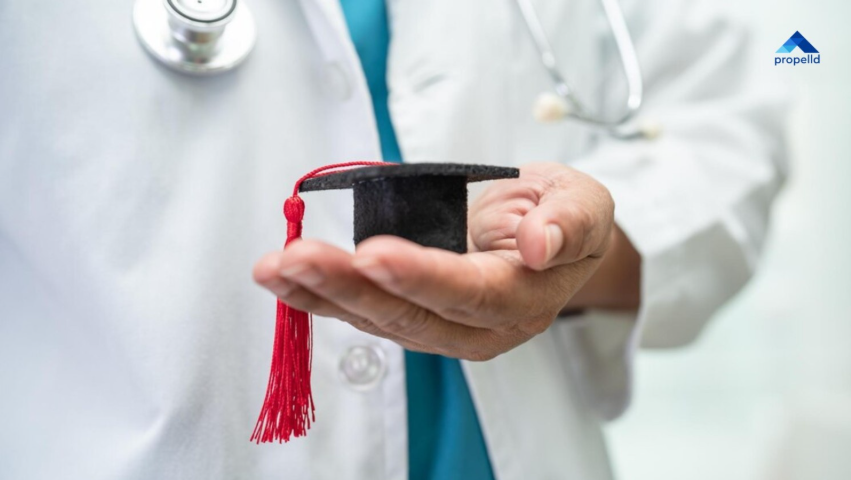Who is an Unani Practitoner?
An unani practitioner is an individual who practises the ancient form of medicine known as Unani Medicine or Unani Tibb. This form of medicine was refined and given shape by a Persian polymath known as Ibn Sina (also known as Avicenna in the West).
An unani practitioner’s approach to medicine is to place importance on an individual’s mijaz or temperament. The practitioner follows learnt practices of unani medicine to treat their patient.
What is a Unani Practitioner’s Job Description?
An individual who studies to become a practitioner of unani medicine has several roles to play. Their day-to-day tasks include:
- Understanding their patients and their physiology in order to best treat them. This can include taking a comprehensive medical history.
- Providing advice to their patients as to the treatment they require.
- Performing unani therapies such as cupping, purging, massages, etc.
What Skills are Needed to be an Unani Practitioner?
The skills needed to become a practitioner of Unani medicine are as follows:
1. Good Communication Skills
These skills include both speaking and listening skills. As a doctor, they must listen carefully to their patients and be able to communicate a treatment plan effectively. They must also remain calm and maintain a soothing tone while speaking to patients to ensure they remain calm.
2. Organisational Skills
A practitioner of Unani medicine must be organised and keep track of patient files. They must also be organised when it comes to taking notes, to ensure they maintain accurate details of their patients.
3. Patience
The practice of Unani medicine involves long term planning. Results may take time to materialise and doctors must remain patient and trust the system. They must also ensure their patients remain calm and understand the treatment plan.
What are the Benefits of Being an Unani Practitioner?
There are many benefits to becoming an Unani practitioner:
1. High Sense of Job Satisfaction
Healing an individual is an act which gives a person a rewarding sense of satisfaction. It makes the act of going to work each day exciting and gives one a sense of purpose.
2. Job Security
India has the highest number of research and healthcare institutions in the field of unani medicine. It is also one of the leading countries in the field of unani medicine. As a result, there is always a need for unani practitioners and that comes with a sense of job security.
3. Flexibility
There are many different institutions an unani practitioner can work in. They can work at a private clinic or a hospital (both private and government). They can also work in the field of research or become a teacher of unani medicine.
How to Become an Unani Practitioner?
An interested candidate can become an Unani practitioner by studying a BUMS course. The full form of BUMS is Bachelor of Unani Medicine and Surgery. BUMS is the first step an individual can take towards becoming an Unani practitioner.
BUMS is a five-and-a-half year undergraduate medical course. BUMS education and training is regulated by the CCIM (Central Council of Indian Medicine). Those interested must fulfil the eligibility criteria to apply for the course and also take the NTA NEET exams.
Details of the BUMS Course
Students studying BUMS will study various subjects which will help them become good unani practitioners. These include:
- Munafeul Aza (Physiology)
- Ilmul Jarahat (Surgery)
- Tareekh-e-Tibb (History of Medicine)
- Amraz-e-Atfal (Paediatrics)
What are the Courses Available to Become an Unani Practitioner?
A student must take the NEET NTA exams before taking admission in a medical college to study a BUMS course. BUMS is the only course in India available for those that want to become practitioners of Unani medicine.
Colleges Offering a BUMS Course
Here are some of the colleges offering a BUMS degree:
What are the Entrance Exams Required to Become an Unani Practitioner?
The NEET exam is taken once a year by the NTA (National Testing Agency) and is compulsory for students looking to get into studying medicine. However, individual states also have some exams that students can take in order to study the BUMS course. These courses include the AP-EAMCET (Andhra Pradesh Engineering Agricultural and Medical Common Entrance Test), Assam CEE (Assam Combined Entrance Examination), and Telangana TS EAMCET (Telangana State Engineering, Agriculture & Medical Common Entrance Test). However, the NTA NEET exam scores are considered at all colleges. The details of the NTA NEET exams are below:
What Specialisation Can One Do After an Unani Practitioner Degree?
Unani medicine in itself is a specialised field. For other medical degrees, students would ideally take the NEET PG exams and study a specialisation at a postgraduate level. However, with practitioners of Unani medicine, students can practise after completing their BUMS course.
What are the BUMS course fees in India?
Here are the fees for some of the courses to study BUMS:
Loans for Students
Banks across the country offer students loans for their higher studies with interest rates as low as 7.5%. There are also organisations such as Propelld offering 100% digitised private student loans.











.svg)